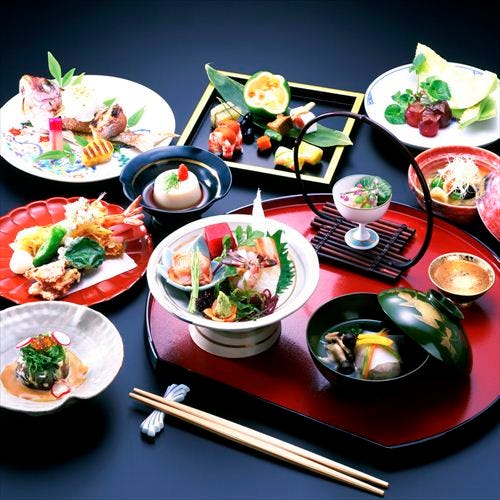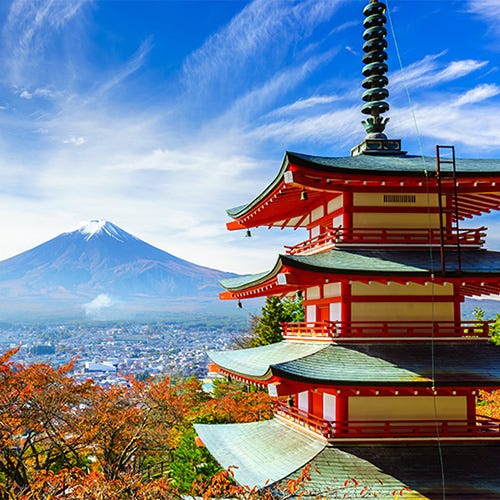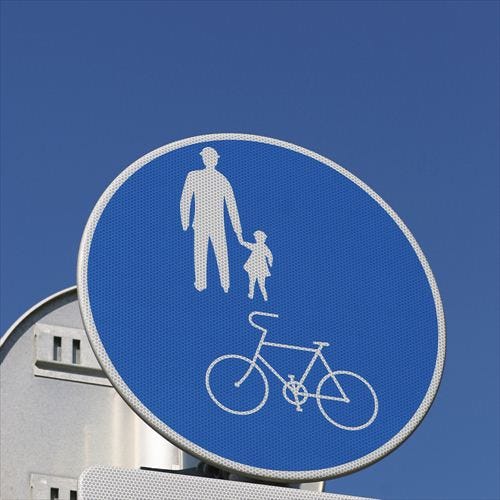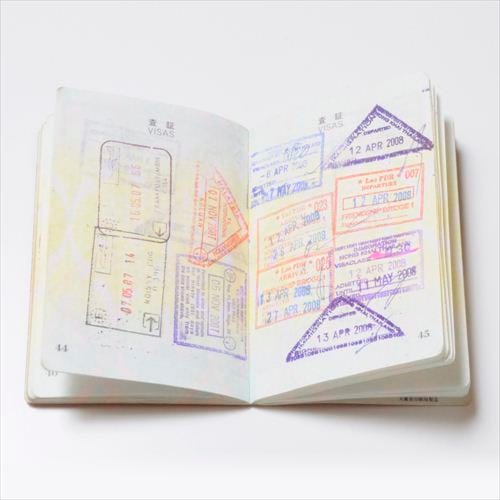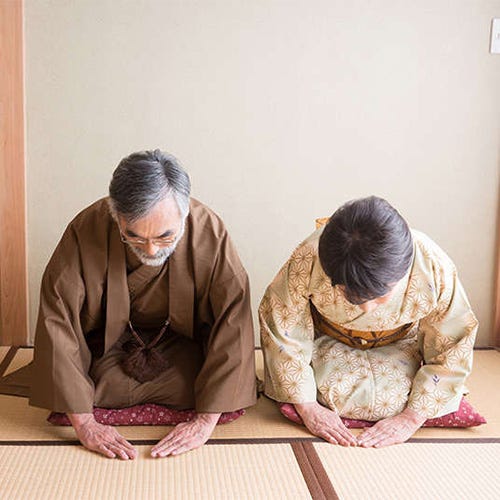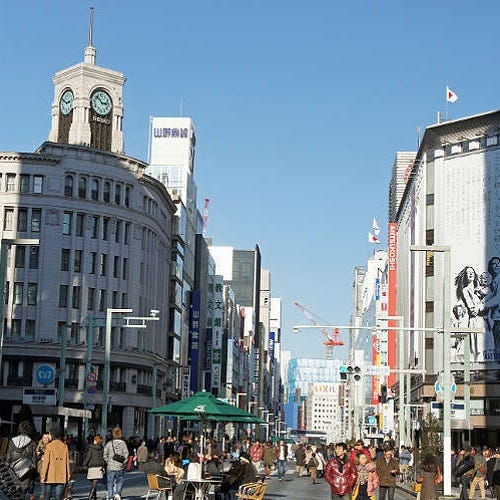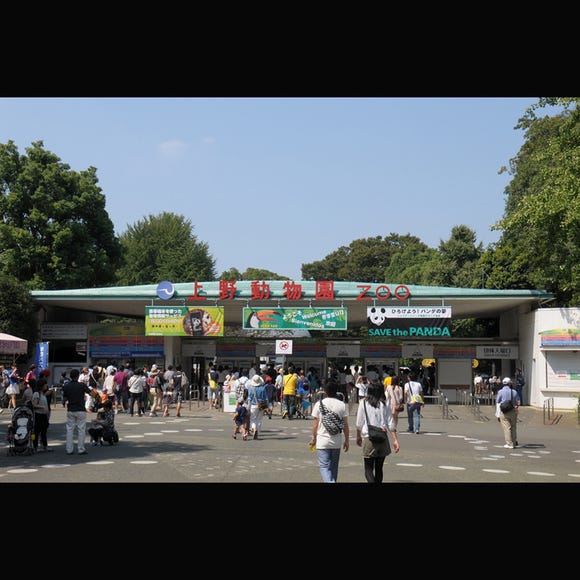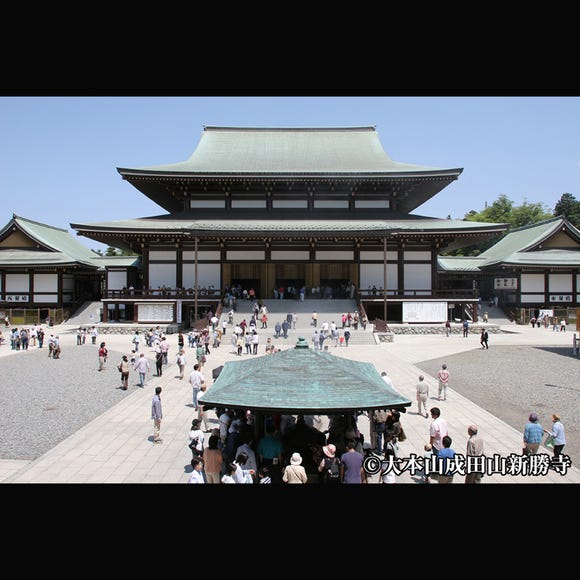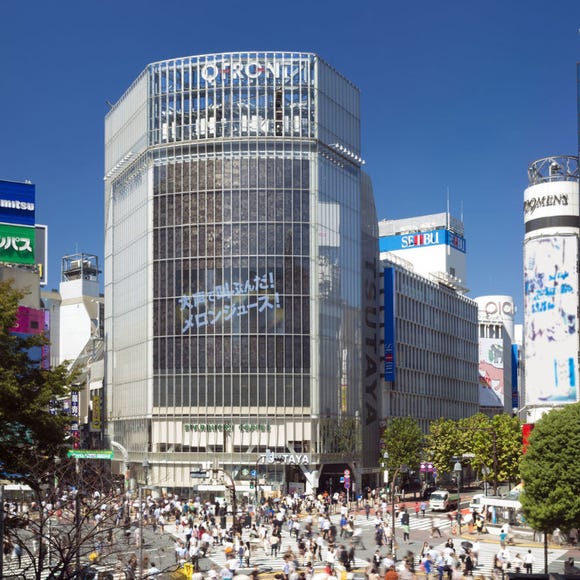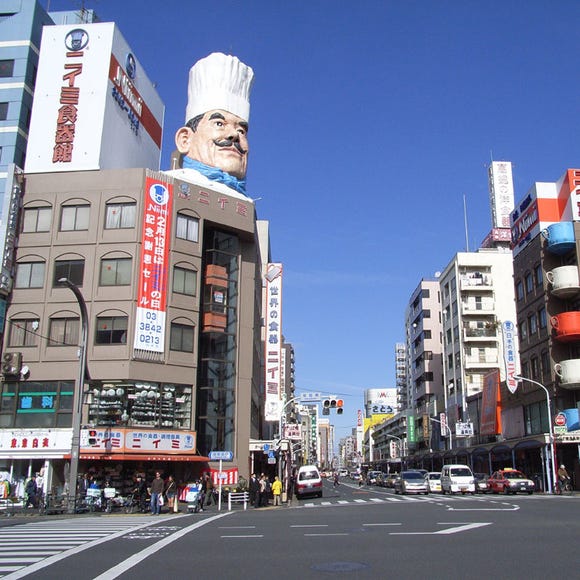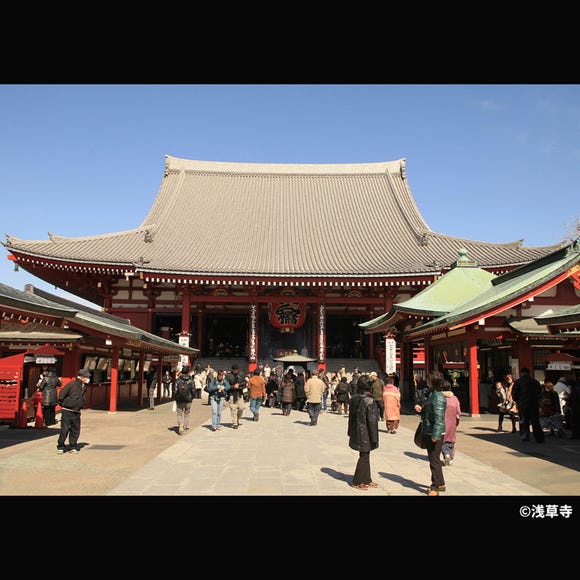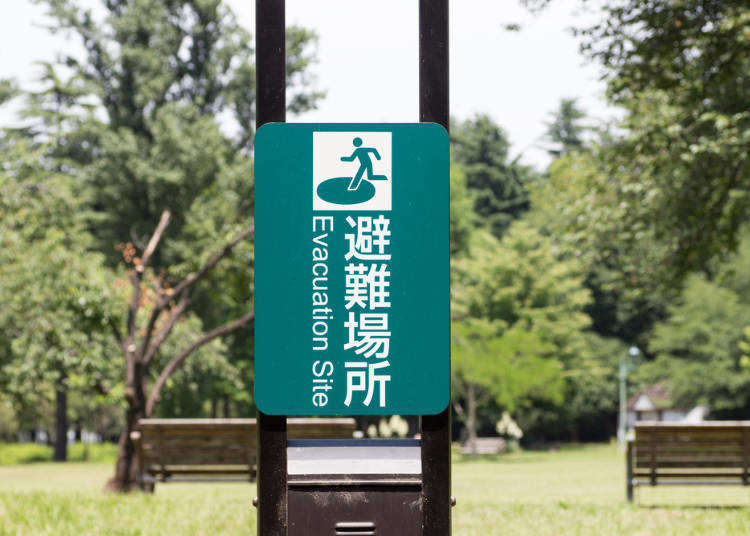
When trouble occurs on a trip. Sudden changes in schedule, seeing a doctor when feeling ill, encountering disasters such as earthquakes and typhoons, problems with transportation systems... When events like these occur, you need to know how to seek assistance, so being able to communicate with those around you and obtain up-to-date information is important. That is not a problem when you are somewhere you know well, but when it occurs while traveling in a foreign country that is a different matter.
Here we will introduce some Japanese phrases that are useful in just those sorts of emergencies.
■ What should you do? Japanese phrases for when you have lost something
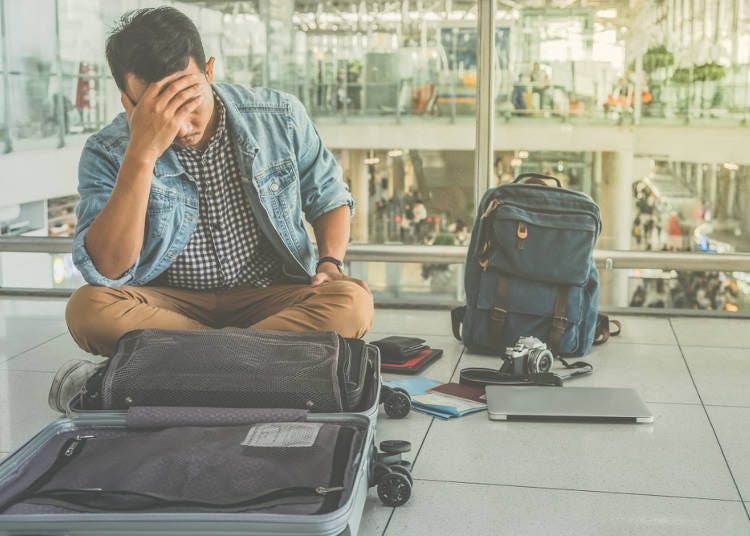
When traveling overseas you have lots of luggage. You need to pay attention to your suitcases, backpack, shoulder bag, and other belongings.
Moreover, other concerns are passports, travel and accommodation vouchers, as well as smartphones and mobile Wi-Fi. Losing any one of these would severely impact your trip. Just saying, “it couldn’t be helped” is not an option. If you do lose something, you need to be able to notify the police and others to seek their assistance.
-Kokuken o nakushimashita. 「航空券をなくしました」
I lost my airline ticket.
-Otoshimono o shimashita. 「落し物をしました。」
I lost something.
Do sureba ii desu ka? 「どうすればいいですか?」
What should I do?
-Ishitsumono kanrishitsu wa doko desu ka? 「遺失物管理室はどこですか?」
Where is the Lost and Found Office?
Another situation might be not seeing your suitcase come out after you arrive in the terminal. In that case you need to be able to report it to the ground staff in the Lost Baggage section.
-Suutsukeisu ga detekimasen. 「スーツケースが出てきません」
My suitcase hasn’t come out.
In addition, if you can tell the airline staff important information such as the address of where you will be staying then they should be able to help you. You can use the following phrase to tell the staff to which hotel your luggage should be sent.
-OO hoteru ni todokete kudasai.「◯◯ホテルに届けてください」
Please have it delivered to the OO Hotel.
■ Japanese phrases for when you're feeling ill when traveling. Telling a Japanese doctor what ails you.

Sometimes the stress to traveling in an unknown land can impact our health. At such a time it is important to be able to explain to a doctor or nurse exactly what your problem is.
For example, you might have a fever [netsu] or experience abdominal pains [fukutsu] after eating something that didn’t agree with you, which may also cause diarrhea [geri].
Also, if you have an allergy [arerugii] it is a good idea to explain that quickly. Sometimes blood transfusions [yuketsu] are necessary in which case you need to be able to tell the doctor what your blood type [ketsuekigata] is.
-Netsu ga arimasu.「熱があります」
I have a fever.
-Kaze o hikimashita.「風邪をひきました」
I caught a cold.
-Onaka ga itai desu.「お腹が痛いです」
I have a stomachache.
-Geri-gimi desu.「下痢気味です」
I have a touch of diarrhea.
-OO arerugii ga arimasu.「◯◯アレルギーがあります」
I have a(n) OO allergy.
-Ketsuekigata wa B-gata desu.「血液型はB型です」
I have type B blood type.
After receiving medical treatment, you will need to ask about other important things such as whether you will need to take medicine [kusuri] and ask for a medical certificate [shindansho] and receipt [ryoshusho] for your insurance.
-Kusuri o kudasai. 「薬をください」
Please give me medicine.
-Shindansho o kudasai. 「診断書をください」
Please give me a medical certificate.
-Ryoshusho o kudasai. 「領収書をください」
Please give me a receipt.
■ Asking for help in Japanese when in an accident or in an emergency
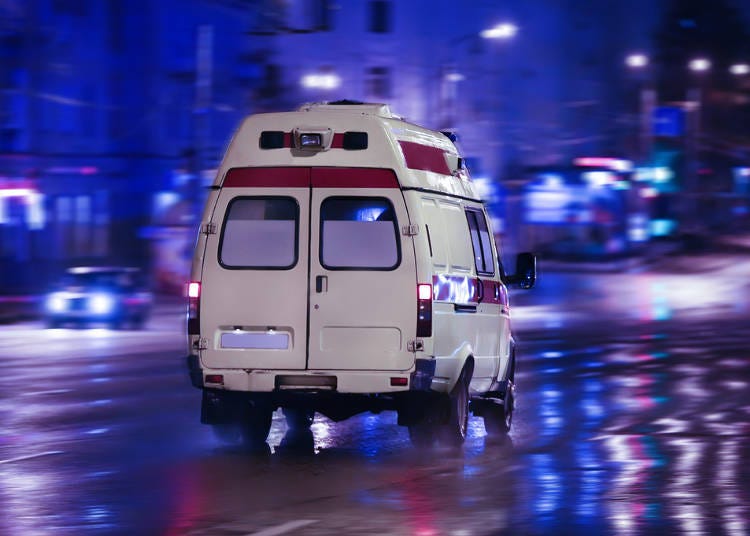
Japan is said to be comparatively safe. But still, accidents can happen. You might be in a traffic accident and there is even the off chance of being pickpocketed. If you should happen to become injured, you will need to call an ambulance [kyukyusha] and if you have other trouble, perhaps the police [keisatsu].
-Tasukete! 「助けて!」
Help!
-Kyukyusha o yonde! Hyakujukyuban!「救急車を呼んで!119!」
Call an ambulance! 119!
-Keisatsu o yonde! Hyakujuban!「警察を呼んで!110!」
Call the police! 110!
Dial 119 to call an ambulance and 110 to call the police. You can of course do that yourself, but if you are uncertain of your Japanese, saying those numbers out loud - hyaku jukyu ban for an ambulance and hyaku juban for the police - should be enough to enlist the help of those around you.
Sometimes you might experience trouble where it will be necessary for you to contact your home embassy.
-OO tasihikan ni shirasete kudasai. 「(電話番号のメモを見せて)ここに電話をかけてください」
Please notify the OO Embassy.
-(Showing the telephone number) Koko ni denwa o kakete kudasai. 「◯◯大使館に知らせてください」
Please call this number.
Shirasete kudasai [Please notify] and Denwa shite kudasai [Please telephone] are two ways for asking help. It is also a good idea to keep telephone numbers with you of your insurance company, hotel, and friends in Japan in case they need to be contacted in the event of an emergency.
■ Suddenly becoming involved in an accident or traffic problem
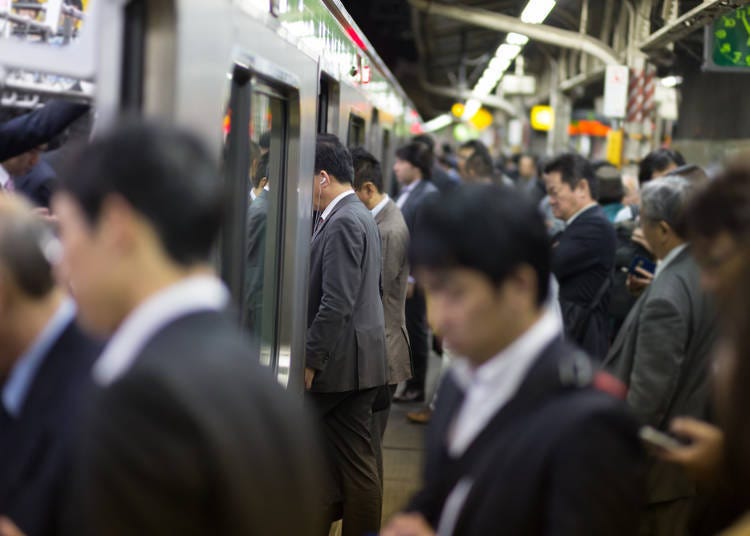
Although Japan, especially Tokyo, has excellent public transportation, when there is an earthquake or heavy snow, timetables may be disrupted. There are times when trains cannot be operated as normal or service may be stopped all together or there may be a sharp decrease in the number of buses in service.
When that happens, Japanese are not able to return home as they usually do and as a result, the major train stations become overly crowded and long lines form at bus stops and taxi stands making them extremely crowded. If you should encounter such a situation, being able to communicate with station staff and those around you will be helpful.
-Densha wa itsu ugokimasu ka?「電車はいつ動きますか?」
When will the trains begin running again?
-OO hoteru ni tomatte imasu.「◯◯ホテルに泊まっています。」
I am staying at the OO Hotel.
-Do yattara kaeremasu ka?「どうやったら帰れますか?」
How can I get back to there?
-Doko ni ikeba ii desu ka?「どこに行けばいいですか?」
Where should I go?
When traffic is paralyzed it is often not possible to know when the trains will begin running again and other things, but if you yourself are aware of the situation you are in that should be of some help. You may be given instructions of what you need to do next, and you may be told about shelters and rest areas.
■ Occurrence of unexpected natural disaster! Japanese phrases for when encountering a disaster
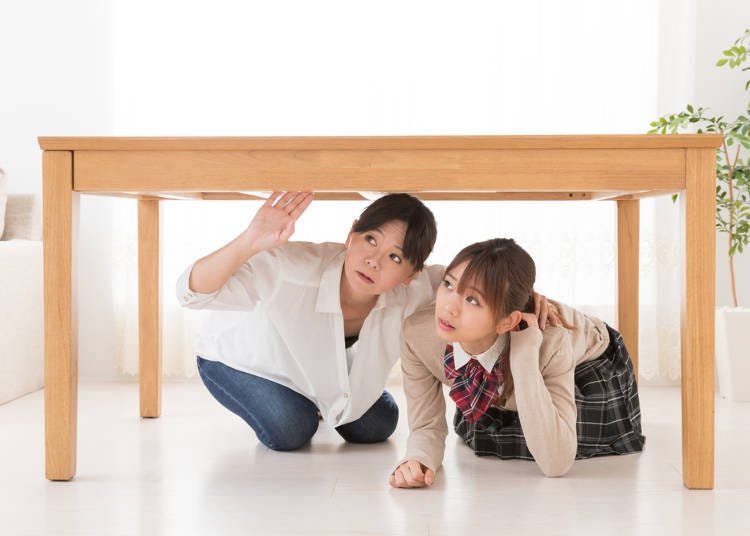
Japan has many earthquakes. In addition to that there are also several other types of natural disasters such as tsunami, volcanic eruptions, typhoons, and flooding.
Even though Japanese are accustomed to dealing with earthquakes, when especially large ones occur they can disrupt services and cause widespread confusion. At such times it is not always easy to get information in English so you would need to make an effort to obtain it on your own. Learning words that describe these disasters such as jishin [earthquake], tsunami [tidal wave], kazan [volcano], taifu [typhoon], and kozui [flood] will help you to ask about them when they occur.
When a disaster occurs the most important thing is to understand the situation surrounding it.
-Nani ga okotte imasu ka?「何が起こっていますか?」
What is happening?
-Jishin no shindo wa dono kurai desu ka? 「地震の震度はどのくらいですか?」
What was the seismic intensity of the earthquake?
-Densha wa sugu ugokimasu ka? 「電車はすぐに動きますか?」
Will the trains start running again right away?
Sometimes the seismic intensity of earthquakes and the scale of disasters is not that great in which case even if transportation has come to a standstill for safety checks, in most cases services are quickly resumed. However, there are also times when traffic does become paralyzed so you need to be careful of that.
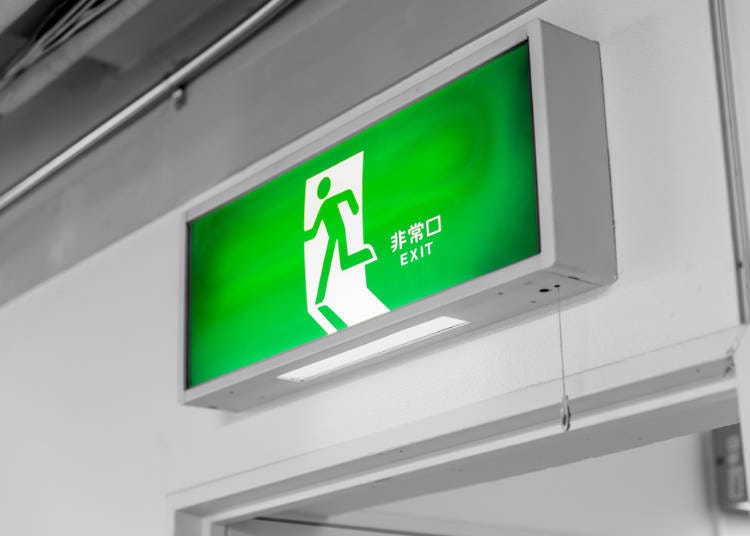
When the disaster is very large it sometimes becomes necessary to evacuate to a shelter.
-Doko e nigereba ii desu ka? 「どこへ逃げればいいですか?」
Where should I evacuate to?
-Anzen na basho wa doko desu ka?「安全な場所はどこですか?」
Where is a safe place to go?
-Hinansho wa doko desu ka?「避難所はどこですか?」
Where is a shelter?
If instructions are given at such time, be sure to follow them because sometimes due to the confusion information can become complicated. At that time ask anyone who appears to be in charge what you should do.
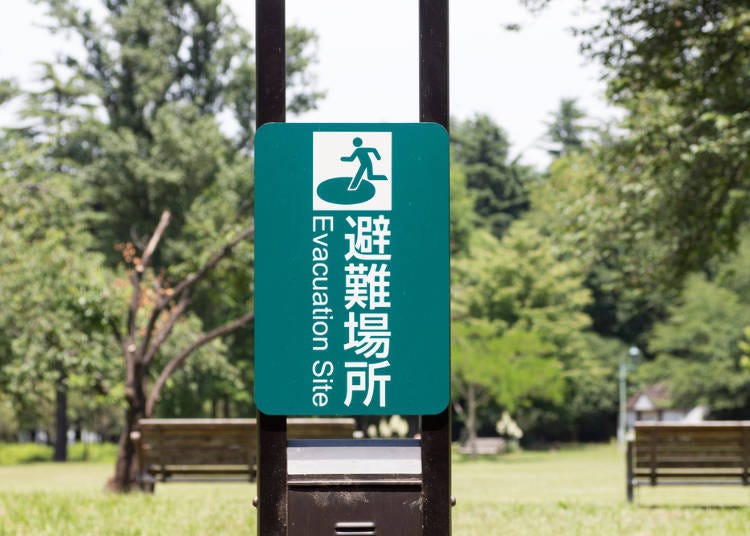
In the case of earthquakes and typhoons, you may have to remain in a shelter until information about the severity of the disaster is assessed. This might mean having to spend the night in such a place. If that is the case, usually food and water are provided so do not hesitate to ask for them at that time.
-Omizu o kudasai.「お水をください」
May I have some water?
-Tabemono o kudasai. 「食べ物をください」
May I have something to eat?
-Mofu o kudasai. 「毛布をください」
May I have a blanket?
If you do not have a phone at that time, ask someone if you can borrow theirs so that you can notify others of your situation. Here are some other phrases similar to “please notify my embassy” that you should remember.
-Denwa o kashite kudasai.「電話を貸してください」
Please lend me a phone.
-Hoteru ni renraku shite kudasai.「ホテルに連絡してください」
Please contact my hotel.
And just to be safe, don't forget to tell your family back home where you will be traveling and staying before you set out on your trip.
■ Summary
If you never have to use any of these phrases while traveling in Japan that is all the better. However, it does not hurt to know them in the off chance that something should occur as they will enable you to deal more coolly with the situation.
*Prices and options mentioned are subject to change.
*Unless stated otherwise, all prices include tax.
Limited time offer: 10% discount coupons available now!
Recommended places for you
-

Step Into the Story: Inside Immersive Fort Tokyo
-

Professional Photos Even Beginners Can Shoot! 10 Tips for Taking Stunning Cherry Blossom Photos
-
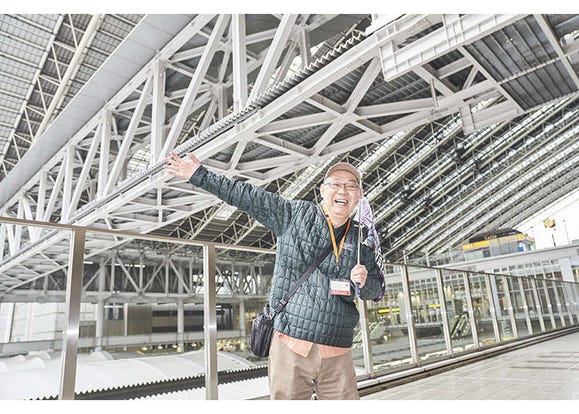
Discover Osaka Station City: A Journey Through Its Most Fascinating Spots
-

12 Unique & Fun Tokyo Food Tours to Enjoy in 2024
-
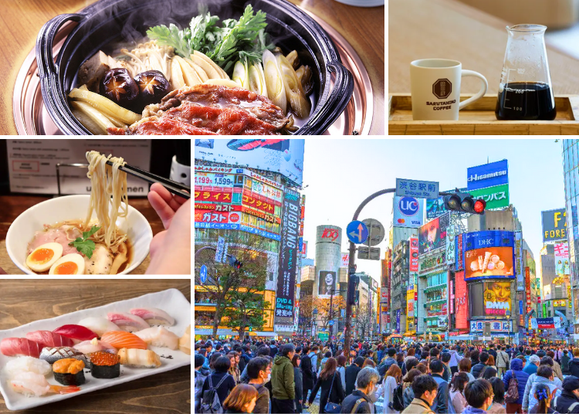
Where to Eat in Shibuya: 14 Must-Try Restaurants for Yakiniku, Sushi, Izakayas, Cafes and More
-

The CASIO S100: How CASIO's Masterpiece Calculator Redefines Business Elegance With Japan-Made Reliability
-
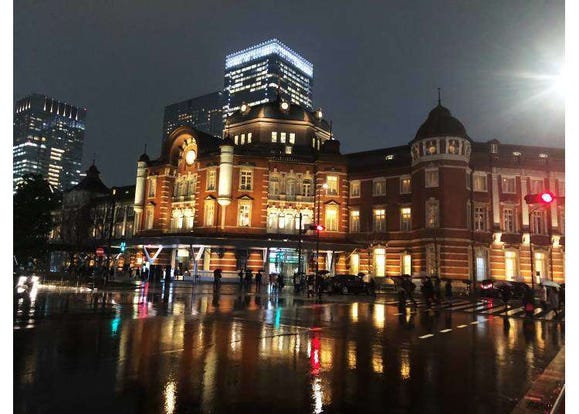
Exploring Tokyo Station: 10 Must-Visit Spots Around the Heart of Tokyo
-

Mind the Language Gap: 8 Untranslatable Japanese Words
-
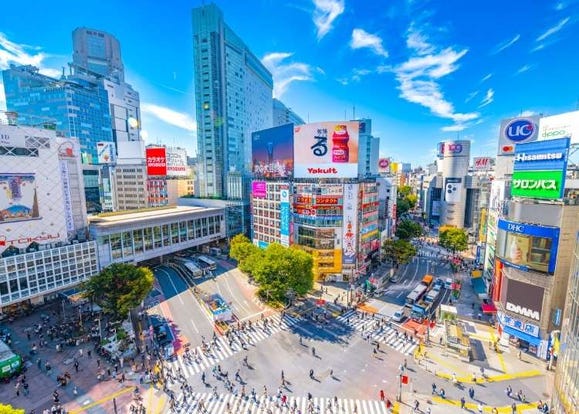
Where You Should Stay in Shibuya: Best Areas & 23 Hotels For Visitors
-
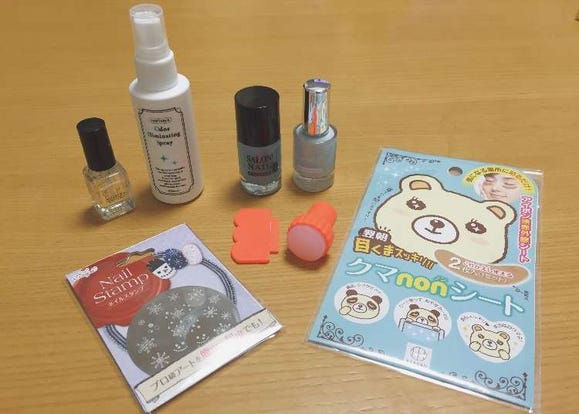
Tips from Japanese Working Women: a Fancy Daily Routine with Can★Do 100 Yen Shop Beauty Goods
-
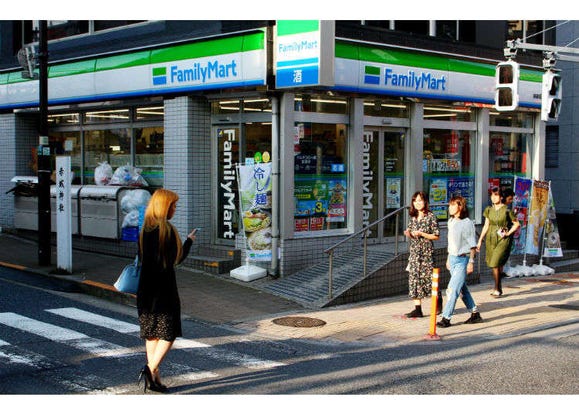
10 Important Japanese Phrases to Know Before You Enter a Japanese Convenience Store!
-
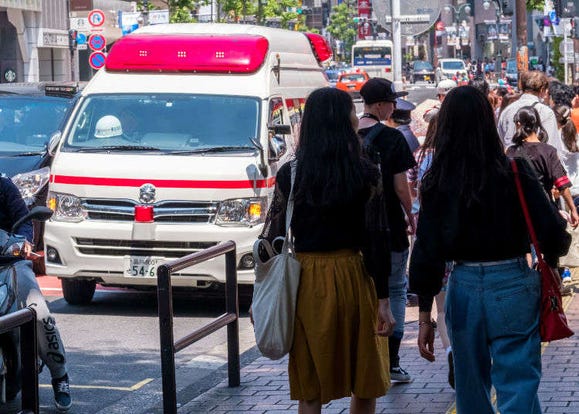
Healthcare in Japan for Tourists: What to Do When You Get Sick or Injured in Japan
- #best ramen tokyo
- #what to buy in ameyoko
- #what to bring to japan
- #new years in tokyo
- #best izakaya shinjuku
- #things to do tokyo
- #japanese nail trends
- #what to do in odaiba
- #onsen tattoo friendly tokyo
- #daiso
- #best sushi ginza
- #japanese convenience store snacks
- #best yakiniku shibuya
- #japanese fashion culture
- #best japanese soft drinks
